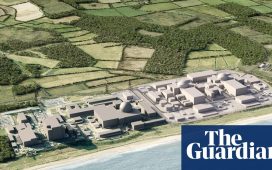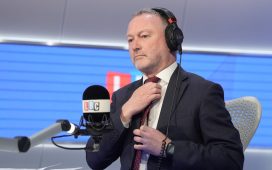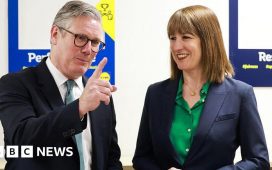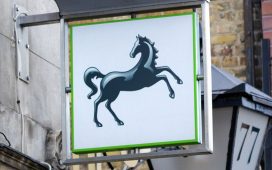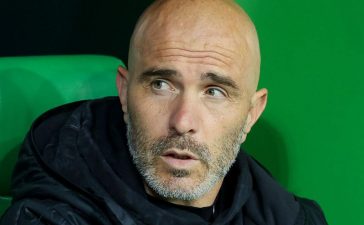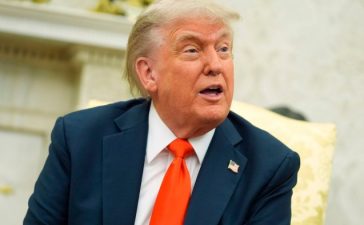Unlock the Editor’s Digest for free
Roula Khalaf, Editor of the FT, selects her favourite stories in this weekly newsletter.
Britain entered lockdown three weeks too late in 2020, former health secretary Matt Hancock said on Thursday, as he criticised a “toxic culture” in Boris Johnson’s government that hampered ministers’ response to the crisis.
Hancock, who has been accused of lying to former top aides and civil servants in evidence so far, told the Covid-19 inquiry that he tried to “wake up Whitehall” to the virus’s threat in early 2020 but senior officials ignored him.
He said “fewer than a tenth of the number of people would have died in the first wave” had the government imposed the first national lockdown on March 2 rather than March 23 — over a week after senior advisers to Johnson recommended the move.
More than 50,000 deaths connected to Covid were recorded during the first wave.
“With hindsight, the first moment we realistically could have cracked it was March 2, three weeks earlier than we did. That’s the moment we should have done it . . . and it would have saved many, many lives,” he said.
Hancock said he urged Johnson to call an “immediate lockdown” in a conversation on March 13, although he conceded there was no evidence to verify this claim. Dominic Cummings, Johnson’s chief adviser when the pandemic began, accused Hancock on the social media platform X of “flat out lying”.
Hancock, who quit as health secretary in June 2021 after admitting he had broken social-distancing guidance by kissing his adviser, denied misleading colleagues about pandemic preparedness.
“You will note that there’s no evidence from anybody who I worked with in the Department [of Health and Social Care] or the health system who supported those false allegations,” he said.
While he had sought to “drive the system forward”, officials “simply didn’t cotton on to the fact that this enormous wave was coming”, he said.
Hancock also blamed an “unhealthy toxic culture” at the heart of government for the spread of “misinformation” about his department.
He said the “culture of fear” emanating from Downing Street had “essentially” been created by Cummings, a “malign actor”.
He added that Cummings tried to stage “a power grab” in early 2020 and held meetings outside of Cobra, the emergency committee that helps co-ordinate a pan-Whitehall response to crises, from which ministers were barred.
Hancock’s comments add to the series of damaging revelations from former top officials and ministers about Britain’s response to the pandemic under Johnson, prime minister between 2019 and 2022.
The inquiry is examining the government’s response to Covid, including the UK’s preparedness and senior decision-making, and is due to run until the summer of 2026. Johnson is due to give evidence next week.
In a series of damning testimonies, several former senior officials have criticised Hancock’s role during the pandemic. In private messages from 2020 seen by the inquiry, Johnson was told by Cummings that Hancock’s “uselessness” was “killing” people.
Helen MacNamara, deputy cabinet secretary when Covid struck, said this month that Hancock displayed “nuclear levels of confidence” about plans for the pandemic.
Hancock rejected that claim on Thursday, saying: “The same people who are accusing me of overconfidence were at the same time blocking the action that I was saying we needed.”
“There were plans” to deal with a pandemic, said Hancock, who became health secretary in 2018. “I’ve critiqued the plans, I’ve said that they weren’t adequate but there were plans in place.”
The MP for West Suffolk came under fresh fire over his insistence during the pandemic that ministers had “tried to throw a protective ring around” care homes “right from the start”. On Thursday, he appeared to concede that this had in fact not been the case.
The inquiry also heard that Hancock had been privately critical of then chancellor Rishi Sunak’s Eat Out to Help Out scheme. The initiative, which subsidised meals in restaurants in the summer of 2020, has been blamed for increasing Covid transmission rates.
Sunak is expected to appear before the inquiry before the end of this year.
In a message shown to the inquiry, Hancock told Sir Mark Sedwill, cabinet secretary between 2018 and 2020, that the scheme was causing “serious” problems and argued “very strongly” against extending it.

